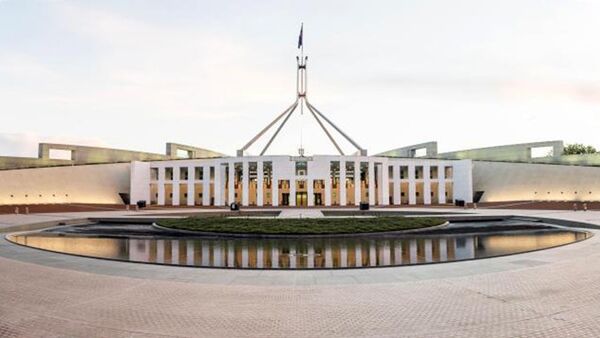MOSCOW, October 2 (RIA Novosti) – Australia’s lower house of parliament passed a law on Wednesday, according to which anyone disclosing information about "special intelligence operations" could face a decade in prison, according to Reuters.
Copying, transcribing, retaining and recording intelligence materials are also outlawed. The move is already being seen as a “direct response to former damaging leaks by National Security Agency contractor Edward Snowden, and vastly expands the government's power to monitor computers,” Reuters says.
The newly-passed legislation is the first of a series of security powers asked for by the country’s government in an attempt to boot security in the wake of a terrorist threat from the Islamic State (IS).
The country is concerned over the number of its citizens heading to Iraq and Syria to fight alongside radical Islamists.
In mid-September, Prime Minister Tony Abbott announced that Australia raised its terror alert from medium to high in response to the activities of the IS in the Middle East. "Medium" means an attack could occur. It is followed by "high", which means an attack is likely and then extreme, meaning an attack is imminent or has occurred. The PM also pointed to the fact that more than 20 of these foreign fighters have already returned to Australia and pose a threat to national security. According to a Guardian article from September 23, senior IS spokesman Abu Muhammad al-Adnani urged followers to attack the nation, saying, “If you can kill a disbelieving American or European – especially the spiteful and filthy French – or an Australian, or a Canadian, or any other disbeliever from the disbelievers waging war, including the citizens of the countries that entered into a coalition against the Islamic State, then rely upon Allah, and kill him in any manner or way however it may be.”
Australian officials have said that at least 60 Australians are believed to be fighting with jihadist groups in Syria and northern Iraq, and 15 Australians have been killed so far in these conflicts, including two suicide bombers. About 100 more Australians are thought to be actively supporting these groups.
Australia has a sizable Lebanese community of approximately 100,000 people, who are commonly associated with gang fighting, organized crime and drive-by shootings in Bankstown, a suburb of its largest city, Sydney, according to TIME magazine.
According to the BBC, “Studies have shown that more than half of those who have embraced radicalism were born in Australia and about 60% are of Lebanese heritage.” Australia is home to 476,300 Muslims, representing 2.2% of the country’s population, according to its 2011 Census.
The country’s legislature has interpreted this threat as a pretext for rethinking online privacy, whistleblowing, and the powers wielded by its intelligence agencies.
“The reforms were needed to update legislation written in the 1970s,” Reuters quotes Attorney General George Brandis as saying. He added that the new laws “were in the same spirit as emergency legislation passed in Britain forcing telecoms firms to retain customer data.”
"This is not, as has been wrongly suggested, about preventing the release of information that might simply embarrass the government of the day or expose it to criticism," Reuters quoted Justice Minister Michael Keenan as saying. "This is about providing a necessary and proportionate limitation on the communication of information that relates to the core business of intelligence agencies.”
However, the legislation has already been criticized by the Committee to Protect Journalists, which is concerned that it has no exemption for journalists, “which could mean they could be imprisoned for up to ten years simply for reporting on national security matters,” it says.
"This national security bill and other draft legislation raise grave concerns about the direction in which Australia is heading," Reuters quotes spokesman Bob Dietz as saying in a statement.
"These bills would seriously hamper reporting in the public interest and we urge lawmakers to add the necessary safeguards to protect journalists and whistleblowers."
Legislation requiring telecommunications providers to keep metadata and to make it available to police and security agencies is currently pending parliamentary approval, as well as a law restricting travel to conflict zones in the Middle East.




